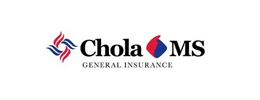Last updated on: September 19, 2025
Choosing the best health insurance in India 2025 depends on factors like coverage, claim settlement ratio (CSR), network hospitals, waiting periods, and premium affordability. Leading insurers such as HDFC ERGO Optima Secure, Niva Bupa ReAssure 2.0, Care Supreme, Aditya Birla Activ One, Acko, and Star Health offer plans ranging from ₹2 lakh to ₹6 crore, each with unique strengths. IRDAI data shows Acko General Insurance leading with a CSR of 99.91%, while Star Health has one of the lowest at ~82.3%. Families benefit from Niva Bupa and Care plans, seniors from Star Health and HDFC ERGO, while budget buyers may prefer Acko or SBI General. Key mistakes to avoid include underinsuring, ignoring waiting periods, and focusing only on premium cost. Buyers should compare CSR above 95%, ensure lifetime renewability, and check for critical riders like maternity or critical illness. Aggregators like Fincover help in comparison but may present biased listings, so it’s wise to cross-check directly with insurers. Ultimately, the right plan depends on your age, family size, health history, and budget — ensuring financial protection against rising healthcare costs in India.
Health care costs in India are rising sharply — from hospitalization to routine checkups, a single medical emergency can wipe out years of savings. That’s why having the best health insurance plan in India is no longer optional but essential.
In this guide, we’ll cover:
Before jumping into the list of top plans, let’s look at the core factors you should evaluate.
Look beyond the sum insured. The “best” plans should include:
A wider hospital network = better cashless treatment access. Always check if your preferred hospital is in-network.
Most insurers impose a 2–4 year waiting period on pre-existing illnesses. Some plans offer reduced waiting with extra premium.
Based on IRDAI claim settlement ratio data (2023–24) and policy features, here are the top insurers to consider.
| Plan / Insurer | Sum Insured | Claim Settlement Ratio (2023–24) | Highlights | Drawbacks |
|---|---|---|---|---|
| HDFC ERGO – Optima Secure | ₹5 lakh – ₹2 crore | ~98.5%+ | Large network (15,000+ hospitals), restore benefit, wide add-ons | Premiums higher for senior citizens |
| Niva Bupa – ReAssure 2.0 | ₹5 lakh – ₹1 crore | ~99% | Covers ages 18–99, 10,000+ network hospitals, strong features | Premium rises steeply with age |
| Care (Formerly Religare) – Supreme Plan | ₹5 lakh – ₹1 crore | ~100% in some reports | Strong claim settlement, wellness programs | Riders cost extra |
| Aditya Birla – Activ One | ₹2 lakh – ₹6 crore | 95%+ | Very high sum insured, modern wellness benefits | Expensive for higher coverage |
| Acko General Insurance | ₹5 lakh – ₹1 crore | 99.91% (highest CSR 2023–24) | Fully digital process, affordable premiums | Limited offline support |
| Star Health Insurance | ₹5 lakh – ₹1 crore | ~82.3% (lowest CSR in report) | Strong presence in tier-2 & tier-3 cities | Low CSR, check exclusions |
CSR = Claim Settlement Ratio. Data: IRDAI annual report 2025 & insurer disclosures. Premiums vary by age, city, and medical history.
Here’s a quick step-by-step checklist:
Pros
Cons
Use aggregators for research, but cross-check directly with insurers before final purchase.
1. Which company has the highest claim settlement ratio in 2025?
Acko General Insurance (99.91% CSR within 3 months, IRDAI 2025 report).
2. What is a good sum insured for a family in metro cities?
Minimum ₹10–15 lakh for a family of 4 in metros due to high healthcare costs.
3. Which is the best health insurance plan for senior citizens?
Star Health Senior Citizen Plan or HDFC ERGO Optima Senior.
4. What is the difference between floater and individual plans?
Floater = shared sum insured, cheaper but risky for seniors. Individual = separate cover per person, safer for high medical risk.
5. Should I buy from Policybazaar or directly?
Use Policybazaar for comparison, but verify and buy directly from the insurer for transparency.
Health insurance is not one-size-fits-all. The best plan depends on your:
If you’re young with dependents → Niva Bupa ReAssure 2.0
If you’re senior → Star Health Senior Citizen Plan
If you want low-cost digital option → Acko Health Plan
If you want premium coverage → Aditya Birla Activ One












How could we improve this article?
Written by Prem Anand, a content writer with over 10+ years of experience in the Banking, Financial Services, and Insurance sectors.
Prem Anand is a seasoned content writer with over 10+ years of experience in the Banking, Financial Services, and Insurance sectors. He has a strong command of industry-specific language and compliance regulations. He specializes in writing insightful blog posts, detailed articles, and content that educates and engages the Indian audience.
The content is prepared by thoroughly researching multiple trustworthy sources such as official websites, financial portals, customer reviews, policy documents and IRDAI guidelines. The goal is to bring accurate and reader-friendly insights.
This content is created to help readers make informed decisions. It aims to simplify complex insurance and finance topics so that you can understand your options clearly and take the right steps with confidence. Every article is written keeping transparency, clarity, and trust in mind.
Based on Google's Helpful Content System, this article emphasizes user value, transparency, and accuracy. It incorporates principles of E-E-A-T (Experience, Expertise, Authoritativeness, Trustworthiness).